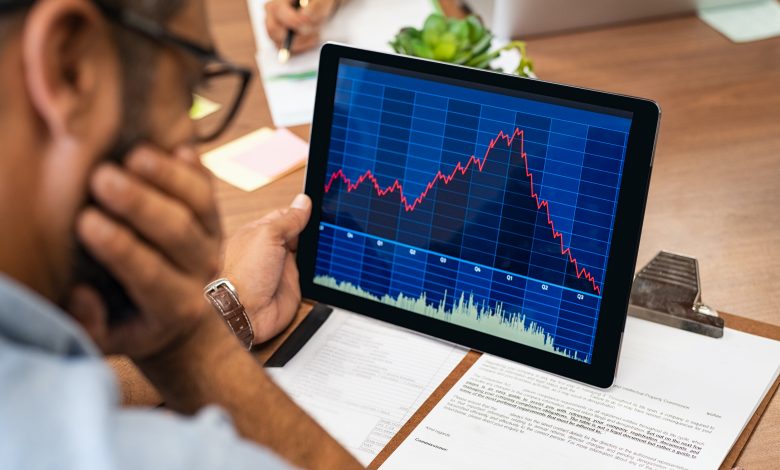
QNB: New Wave of Covid-19 in Large Advanced Economies Can Cause Double Dip Global Recession
بنك قطر الوطني: ظهور موجة جديدة من كوفيد-١٩ في الاقتصادات المتقدمة الكبيرة يهدد بركود عالمي مزدوج
QNA
Doha: QNB weekly commentary report said today that over the last few months, aggressive policy stimulus and the partial containment of the Covid-19 pandemic in large advanced economies produced a significant reversal of global trends.
In fact, in Q3 2020, after a sharp but deep global depression, a broad-based economic stabilization took place. While activity was still far from pre-pandemic levels and even in contraction territory on a year-over-year basis in all major economies except for China, the rate of change improved significantly and the positive momentum created optimism and hope.
The report added that conditions are taking another dramatic turn for the worse in large advanced economies. A ‘second wave’ of new Covid-19 cases is emerging, particularly in the Euro area and the US. After months of decline and stabilization in the number of new Covid-19 infections, the epidemic is now not only worsening in several advanced economies but also showing signs of a steep acceleration ahead of the flu season on the Northern Hemisphere.
Importantly, several European countries (France, Germany, Belgium, Greece, Spain, the UK, Italy) are moving again towards more aggressive mitigation strategies, including the re-imposition of hard social distancing measures such as quarantines, curfews and lockdowns. The objective is to lengthen the time through which the virus spreads over the winter, flattening the curve of infections before hospitals get overloaded by a bigger surge of severe cases. The aim is to save lives, increase recovery rates and avoid unintended consequences associated with strained healthcare systems.
But a ‘second wave’ of hard social distancing measures will come with costs to large advanced economies, potentially de-railing the economic stabilization process that started in Q3 2020 with a ‘double dip ‘stop-and-go’ activity patterns.
QNB report added that this piece dives into three key points about the economic consequences of a ‘second wave’ of severe epidemics in the Euro area and the US, drawing parallels with the ‘first wave’ early in the year.
First, this time around there is less uncertainty about the virus itself and how to handle it. Health authorities understand more about the virus and its transmission, and treatments have improved across the board, with some data suggesting that hospitalization and death rates are diminishing. Moreover, there is more expertise now on how to implement social distancing measures as well as on how to manage its economic consequences. Financial support facilities to corporates and households were already introduced and can be extended further in the coming months in the Euro area and the US.
Second, supply side effects are expected to be smaller than in the first wave, producing a more moderate shock to activity. This is because social distancing mandates are slightly less stringent than before and because work-from-home infrastructure is already in place. To a certain extent, a large part of the economy in the Euro area and the US is already adapted to functioning under the ‘new normal’ with the pandemic.
Third, economic stimulus will likely need to be even more aggressive or generous than in the first lockdown, particularly when it comes to support to the corporate sector in large advanced economies. In the first wave, vulnerable industries received the majority of their support line in the form of concessional loans and delayed payments of taxes. A simple extension of those schemes would lead to very high levels of private debt, potentially causing a wave of bankruptcies in the Euro area and the US. New financial support measures need to be designed for the ‘second wave.’
The report pointed out that several large advanced economies were unable to achieve an orderly transition from horizontal social distancing (government mandated lockdowns of entire populations and regions) to vertical social distancing (voluntary precautions and the isolation of the most vulnerable and the infected patients). This will slow down the process of economic normalization, likely producing a double dip global recession. However, this should be a rather short global recession, probably concentrated on Q1 2021. After the Northern Hemispheres winter season, and with the global efforts for a vaccine bearing fruit, the global economy should experience a full-fledged, rapid economic recovery.
قنا
الدوحة: قال التقرير الأسبوعي الصادر عن بنك قطر الوطني (QNB) إنه على مدى الأشهر القليلة الماضية، أدت سياسات التحفيز القوية والاحتواء الجزئي لوباء كورونا (كوفيد-19) في الاقتصادات المتقدمة الكبيرة إلى تحول كبير في الاتجاهات العالمية.
ونوه التقرير بأنه قد حدث في الواقع استقرار اقتصادي واسع النطاق في الربع الثالث من عام 2020، بعد ركود حاد وعميق. وعلى الرغم من أن النشاط في جميع الاقتصادات الرئيسية، ما عدا الصين، لا يزال بعيدا عن المستويات التي كان عليها قبل الوباء بل ويعتبر في منطقة الانكماش بالمقارنة مع العام السابق، إلا أن معدل التغيير قد تحسن بشكل كبير وأدى هذا الزخم الإيجابي إلى انتشار التفاؤل والأمل.
وأشار إلى أن الأوضاع في الاقتصادات المتقدمة الكبيرة أخذت منعطفا خطيرا وتتجه مجددا نحو الأسوأ. فقد بدأت “موجة ثانية” من حالات الإصابة بـ (كوفيد-19) في الظهور، لا سيما في منطقة اليورو والولايات المتحدة. وبعد أشهر من تراجع واستقرار عدد الإصابات الجديدة بالمرض، بدأ الوباء يتفاقم في العديد من الاقتصادات المتقدمة الكبيرة وظهرت أيضا علامات تسارع حاد في وتيرة التفشي قبل موسم الإنفلونزا في النصف الشمالي من الكرة الأرضية.
ولفت التقرير إلى أن العديد من الدول الأوروبية (فرنسا وألمانيا وبلجيكا واليونان وإسبانيا والمملكة المتحدة وإيطاليا) تتجه مجددا لاعتماد استراتيجيات أكثر صرامة للتخفيف من انتشار الوباء، بما في ذلك إعادة فرض تدابير صارمة للتباعد الاجتماعي، مثل الحجر الصحي وحظر التجول والإغلاق. والغرض من ذلك هو إبطاء وتيرة تفشي الفيروس خلال فصل الشتاء، مما يؤدي إلى تسطيح منحنى العدوى قبل أن تكتظ المستشفيات بالمرضى بسبب الزيادة الكبيرة في عدد الحالات. والهدف هو إنقاذ الأرواح وزيادة معدلات التعافي وتجنب العواقب غير المقصودة المرتبطة بإنهاك أنظمة الرعاية الصحية.
وأكد أن “الموجة الثانية” من تدابير التباعد الاجتماعي الصارمة ستكون لها تبعات على الاقتصادات المتقدمة الكبيرة، ومن المحتمل أن تعرقل عملية الاستقرار الاقتصادي التي بدأت في الربع الثالث من عام 2020 من خلال التسبب في “ركود مزدوج” أو “تذبذب” في النشاط.
ويتعمق التقرير الأسبوعي الصادر عن بنك QNB في ثلاث نقاط رئيسية ترتبط بالعواقب الاقتصادية لظهور “موجة ثانية” من الانتشار الحاد للأوبئة في منطقة اليورو والولايات المتحدة، إلى جانب استخلاص أوجه التشابه مع “الموجة الأولى” التي حدثت في وقت مبكر من العام الجاري.
وأشار إلى أن النقطة الأولى تتمثل في أن هناك قدر أقل من عدم اليقين بشأن الفيروس نفسه وكيفية التعامل معه. تفهم السلطات الصحية المزيد عن الفيروس وطرق انتقاله، وقد تحسنت العلاجات على جميع الأصعدة، حيث تشير بعض البيانات إلى أن معدلات دخول المصابين للمستشفيات ومعدلات الوفاة آخذة في التناقص. علاوة على ذلك، هناك المزيد من الخبرة الآن حول كيفية تنفيذ تدابير التباعد الاجتماعي وكذلك كيفية إدارة عواقبها الاقتصادية. وتم تقديم تسهيلات الدعم المالي للشركات والأسر بالفعل ويمكن تمديدها أكثر في الأشهر المقبلة في منطقة اليورو والولايات المتحدة.
أما النقطة الثانية، فأنه من المتوقع أن يكون التأثير على الإمداد أقل مما كان عليه في الموجة الأولى، لذلك ستكون الصدمة الناتجة عن الموجة الثانية أقل حدة بالنسبة للنشاط الاقتصادي، وذلك لأن تعليمات التباعد الاجتماعي أقل صرامة من ذي قبل ولأن البنية التحتية للعمل من المنزل موجودة بالفعل. وإلى حد ما، تم تكييف جزء كبير من الاقتصاد في منطقة اليورو والولايات المتحدة بالفعل للعمل في ظل الوباء ضمن “الوضع الطبيعي الجديد”.
وفي النقطة الثالثة، من المرجح أن تكون هناك حاجة إلى تحفيزات اقتصادية أكثر قوة أو سخاء مما كانت عليه في الإغلاق الأول، لا سيما فيما يتعلق بدعم قطاع الشركات في الاقتصادات المتقدمة الكبيرة. في الموجة الأولى، تلقت القطاعات الهشة غالبية الدعم الخاص بها في شكل قروض ميسرة وتأخير لدفعات الضرائب. بالتالي، فإن أي تمديد بسيط لهذه الخطط من شأنه أن يؤدي إلى مستويات عالية للغاية من الديون الخاصة، مما قد يتسبب في موجة من حالات الإفلاس في منطقة اليورو والولايات المتحدة. لذلك، ينبغي تصميم تدابير دعم مالي جديدة لـ “الموجة الثانية”.
وأضاف التقرير أنه بشكل عام، لم تتمكن العديد من الاقتصادات المتقدمة الكبيرة من تحقيق انتقال منظم من التباعد الاجتماعي الأفقي (الإغلاق الذي تفرضه الحكومة على مجموعات سكانية ومناطق بأكملها) إلى التباعد الاجتماعي الرأسي (إجراءات احتياطية طوعية وعزل الأشخاص الأكثر هشاشة والمرضى المصابين).
ونوه التقرير إلى أن سيؤدي هذا الأمر إلى إبطاء عملية التطبيع الاقتصادي، مما سينتج عنه على الأرجح ركود عالمي مزدوج. ومع ذلك، يحتمل أن يكون هذا الركود قصيرا نوعا ما، وربما يتركز في الربع الأول من عام 2021. وبعد انتهاء موسم الشتاء في النصف الشمالي للكرة الأرضية وظهور ثمار الجهود العالمية لإنتاج لقاح، من المرجح أن يشهد الاقتصاد العالمي تعافيا اقتصاديا سريعا وكاملا.



